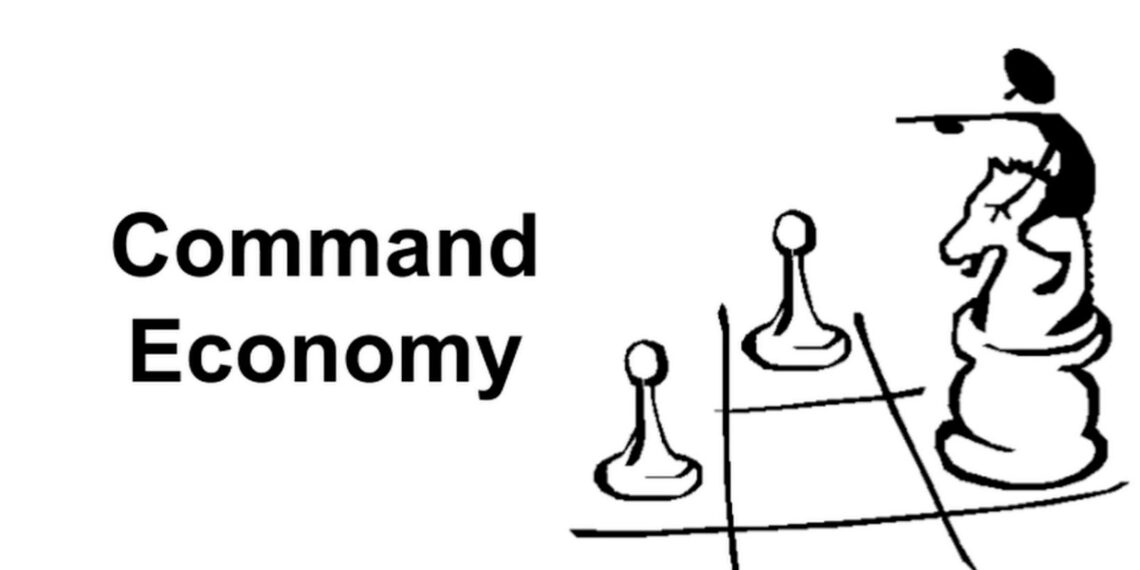As an expert in economics, I will discuss what is prohibited in a command economy. A command economy, or a planned economy, is an economic system in which a central authority makes all economic decisions. In this type of economy, the government controls all production, distribution, and pricing aspects.
Under a command economy, several things are prohibited. These include private ownership of businesses and property, free market competition, and individual decision making. Instead, the government controls all economic activities and determines what is produced, how, and who it is produced for.
Additionally, the government often sets fixed prices for goods and services and determines worker wages. This means that market forces such as supply and demand do not drive prices and wages. Instead, they are determined by the central authority. Any actions outside the government’s control are prohibited and considered illegal.
Restricted Private Property Rights
One of the most significant features of a command economy is the restricted private property rights. In this type of economy, the state owns most of the property and resources and makes decisions regarding their allocation. As a result, private ownership of property, production, and distribution channels is strictly curtailed.
The government has the ultimate control over all economic activities and can change policies as necessary. Individuals are not free to choose what they will produce, how much they will produce, or what they will do with the goods and services they produce. In a command economy, the government’s goal is to ensure that the economy works in the state’s best interest rather than the individual.
As a result of this system, there are several restrictions on private property rights. For example, individuals cannot own land, buildings, or machinery essential to the state’s industry or agricultural production. In addition, the state can nationalize or take possession of private property at any time, without compensation or recourse for the owner.
Furthermore, individuals cannot buy or sell goods or services without the government’s permission. The government decides what goods will be produced, how much, and the prices at which they will be sold. Individuals cannot own or operate their businesses or decide what is produced, how, and to whom it is sold.
Overall, the restrictions on private property rights in a command economy are extensive. In this economic system, individuals have little freedom to make choices, and the government has complete control over economic activities.
Government Control Of Prices And Production
One of the key features of a command economy is government control over prices and production. This means that the government sets the prices for goods and services and decides what should be produced, how much, and by whom. Here are some factors that fall under government control in a command economy:
- Price controls: One of the most significant ways the government regulates the economy is by controlling prices. This can include setting price floors or ceilings to prevent producers from charging too much or too little for their products.
- Production quotas: Governments in command economies also impose production quotas on businesses and industries. These quotas specify how much of a particular product should be produced during a given period.
- Resource allocation: The government decides how resources are allocated and which industries should receive priority. This can lead to misallocation of resources and inefficient production.
- Centralized planning: Command economies are also characterized by centralized planning, where the government makes economic decisions for society. As a result, individual preferences and market signals are ignored, leading to a lack of innovation, stifled competition, and a shortage of goods.
These factors can lead to several economic problems, including shortages, surpluses, and inefficiencies. In a command economy, the government exercises much control over economic activity at the expense of individual freedoms and market efficiency.
What Is Prohibited In A Command Economy? Check All That Apply
In a command economy, the government has complete control over economic activities. As a result, several restrictions are placed on businesses and individuals to ensure that resources are used most efficiently to achieve the country’s goals. The limits on trade and foreign investment are some of the most significant characteristics of a command economy. Below are some of the prohibitions that apply:
- Tariffs: A command economy can impose tariffs on certain imported goods to protect home-based industries. This measure ensures that local businesses can compete with foreign firms.
- Import and Export Quotas: In a command economy, the government typically limits the amount of goods that can be imported or exported. This restriction is implemented to minimize the trade deficit and control the flow of goods.
- Ban on certain goods: Certain products may be banned from being imported for various reasons, including health concerns, safety, or moral values. For example, importing tobacco or alcohol products can be prohibited or heavily taxed in some countries.
- Strict regulations: Companies operating in a command economy may face stringent regulations that make trade with foreign firms difficult. The government can control the prices of goods, which may impact the profitability of the businesses.
- Limited Foreign Investment: A command economy allows only limited foreign investment. Foreign companies cannot own large portions of the business or acquire real estate property under the law. This measure ensures that the government and local companies maintain control of vital sectors of the economy.
A command economy significantly restricts the free flow of goods and services across borders. These limits are enforced to ensure that the government maintains control of the economy, and resources are used to achieve the state’s goals.













